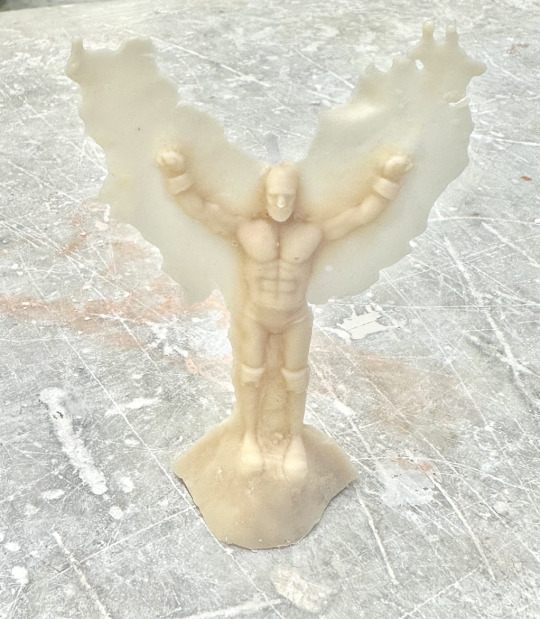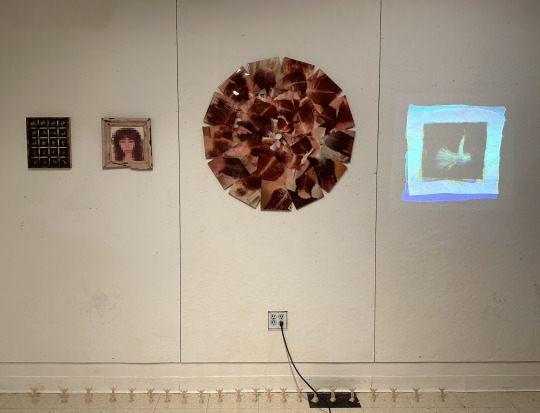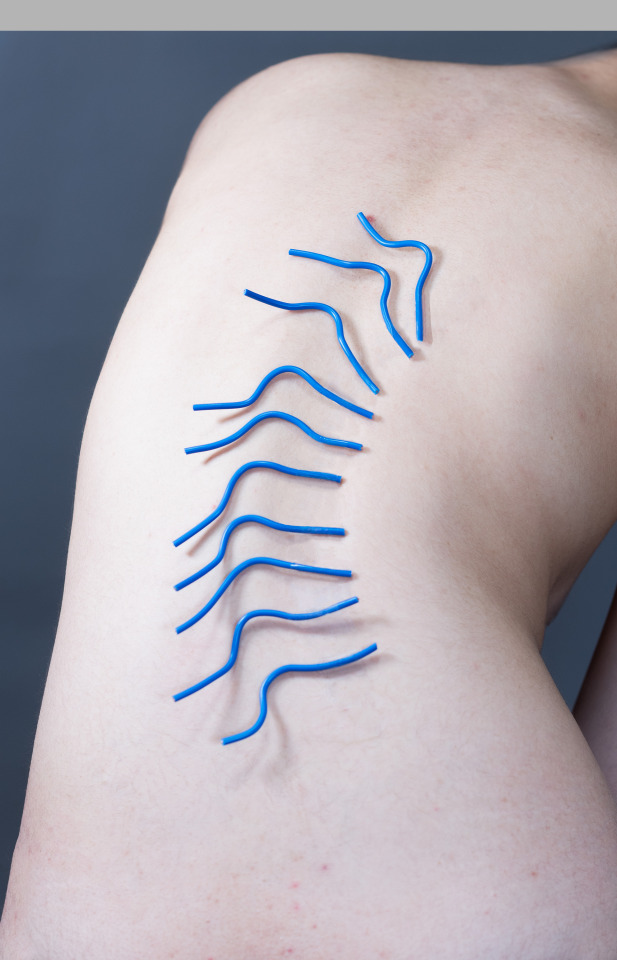Blog dedicated to the students of Junior Research with Shala Miller.
Don't wanna be here? Send us removal request.
Text
WAYWARD LIVES, BEAUTIFUL EXPERIMENTS
In this book, author Saidiya Hartman deeply describes the living situations of African-American women in the early twentieth century, mainly in New York or Philadelphia. In this book, Hartman offers some of the most emotional writing compared to other articles I’ve read. Further pushing the grim fact of the horrors African American women had to experience.
When I first started reading this book, it gave me a sense of complication. Not only does it include a deep analysis of the historical background but also relates to the author’s personal emotions. One might argue that because of this, readers are able to better understand these horrific experiences. With that being said, there is one specific part of the book I felt a deeper connection with. “It is a picture that confounds our efforts to classify it. Art? Science? Pornography? It is a cold image that makes apparent what can be taken and what can be done under the guise of science and observation. The violence achieved and practiced justifies itself as the study of the Negro, as an anatomy lesson” (pg. 36).
When reading this sentence, I felt a sense of clarity for I have understood the author on a deeper level. I think this statement is quite intriguing, while it is true that photography as a mere tool is perfect for documenting scientific research, it also became a way for oppression and dehumanization. For in the frame of a camera, one is no longer considered human but a subject.
-Alvin

0 notes
Text
Mixed Critique
During this critique, I was able to hear a wide varieties of voices regarding my work and I was able to reflect on some of the core theme in this body of work. This time, I tried to add three darker images to the piece, trying to imply further grimness. While reading my notes back at home, I realized how most of the feedbacks are similar with each other. One might argue that this could be a problem or beneficial to the project. Overall I think it is a good response for I heard a lot of descriptions of my work during formal analysis that are similar to what I am trying to express.




-Alvin
0 notes
Text
Final Images
For my final images, I reprinted some images of my hometown form my archive and pined them directly on other prints to create a sense of relief as well as creating more motion for viewers during the observation. I also chose some pictures I took while in Georgia for the landscape over there gave me a sense of detachment. I always found urban environment in the US to be such emotional areas. Which I believe is the perfect comparison to other busy images in the project. I think by combining other still life images and working with different sizes and placement of images the project became solidified. Which I was happy with.
-Alvin





0 notes
Text
Post 2
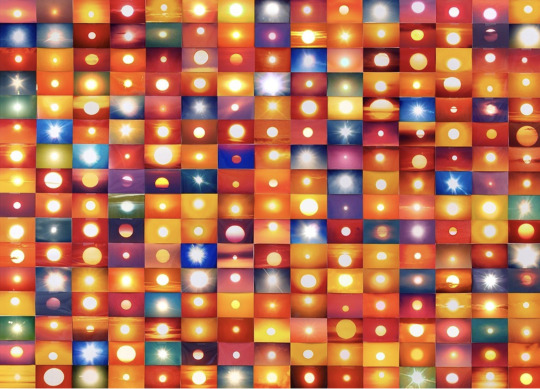
Suns from Sunsets from Flickr, 2006 - ongoing
"I began the project Suns from Sunsets from Flickr in 2006 when, looking for the most photographed subject, I searched the photo-sharing website Flickr and found “sunsets” to be the most present (tagged) resulting in 541,795 in 2006 hits. I thought it peculiar that the sun, the quintessential giver of life and warmth, constant in our lives, symbol of enlightenment, spirituality, eternity, all things unreachable and ephemeral, omnipotent provider of optimism and vitamin D… and so ubiquitously photographed, is now subsumed to the internet – this warm singular object made multiple in the electronic space of the web, and viewed within the cool light of the screen." Penelope Umbrico
I found this project to be quite interesting and inspiring to my body of work. Repetition theme.
Sophie
0 notes
Text

Wayward Lives, Beautiful Experiments
"The surveys and the sociological pictures left me cold. These photographs never grasped the beautiful struggle to survive, glimpsed the alternative modes of life, or illuminated the mutual aid and communal wealth of the slum. The reform pictures and the sociological surveys documented only ugliness. Everything good and decent stood on the ruins of proscribed modes of affiliation and ways of living: the love unrecognized by the law, households open to strangers, the public intimacy of the streets, and the aesthetic predilections and willful excesses of young black folks. The social worlds represented in these pictures were targeted for destruction and elimination. The reformers used words like “improvement” and “social betterment” and “protection,” but no one was fooled. The interracial slum was razed and mapped into homogeneous zones of absolute difference. The black ghetto was born." (p30)
"It won’t be photographed from the inside until decades later. Not until 1953 will a photograph convey the experience of dwelling within these walls, offer a glimpse of the life worlds made there, capture the breathlessness of a fourth floor walk-up, know first-hand that how we live and where we stay is not a social problem. It is our relation to the white world that is the problem. Even in the kitchenette one can find the joy of couples dancing under a clothesline suspended from the ceiling, teenagers playing cards and laughing with their friends, a man sitting at a kitchen table drinking tea, the steaming cup pressed tight against his cheek. He delights in the sensation of the heat against his face, the feel of the porcelain on his skin." (p33)
“The how-to-live and the fierce urgency of the now can be perceived in these other photographs, the images lost and found, imagined and anticipated, like....,...This collective endeavor to live free unfolds in the confines of the carceral landscape. They can see the wall being erected around the dark ghetto, but they still want to be ready for the good life, still want to get ready for freedom.”(P33)
The powerful narrative confronts the limitations of conventional photography in capturing the essence of marginalized communities, particularly within the context of the slums and the emergence of the black ghetto. It's a poignant reflection on how images can be manipulated to serve the agendas of those in power, perpetuating stereotypes and reinforcing oppressive social structures.
These images, intended to document social conditions and drive change, often fell short, focusing solely on the ugliness and disorder of poverty without capturing the resilience, beauty, and alternative modes of existence within these communities. Instead of illuminating the rich tapestry of life in the slums, they served to justify destructive interventions that further marginalized and segregated marginalized groups. By labeling spaces as "Negro quarter" or depicting crowded living conditions as "damaged goods," they dehumanize and stigmatize entire communities, perpetuating harmful stereotypes and justifying discriminatory policies.
However, amidst the bleakness of these representations, there are glimpses of resistance and resilience captured in alternative forms of photography. Images of church picnics, beach outings, and everyday moments of joy and camaraderie serve as a counter-narrative, challenging the dominant discourse of poverty and despair. They reveal the fierce determination of black individuals to carve out spaces of freedom and joy within the confines of a carceral landscape.
The communal solidarity and creative energy of the black metropolis emerge as sources of inspiration and empowerment, challenging conventional notions of beauty and success. Despite the barriers imposed by systemic oppression, there is a collective endeavor to envision and pursue a life of dignity and freedom.They are not passive victims but active agents of change, dreaming of a better future and resisting the walls of segregation being erected around them.
----Nana
0 notes
Text
Photobook
Photo books as objects have always captured my interest. Bookbinding itself as a form of artistic choice could affect how the works are presented as a whole. For this post I chose one of the photo books we saw at the library. This one captured my attention because it is something I found familiar. It is a Chinese cigarette box filled with wedding pictures inside. The amount of nostalgia washes through me. Just last summer I attended my neighbor’s wedding. It is one of the traditions to provide guests with relevant high-grade cigarettes in Chinese culture. Not only does the flash of these pictures depict a sense of timelessness. The box itself seems like an artifact from another time. I haven’t seen this brand in years. The letter on the outside of the box also means “happiness” which I often found quite disturbing.
-Alvin

1 note
·
View note
Text
Daily Life
For my daily life, I try to go on walks once in a while to just think to myself. It could be quite hard sometimes to maintain one’s mental state in a healthy manner with mental illness. However, when I started take my walk, I started having conversations with other objects in my head. Trying to narrate their perspectives. I don’t know why and when I started doing this but I always remember my conversations with these objects. Sometimes it gets to the point where I have a hard time when breaking materials to make stuff or just simply throw them out. Often, I will also take pictures during my walks. Below are some images I took recently on my walks. In the first image, as I walked past the narrow alley, I glimpsed into this space and heard a voice calling me over. I stopped and gazed at the scenery. It is nothing special in New York. A trash can filled to the brim and overloaded with bags of trash. Abandoned, isolated, with nothing but this forsaken space surrounding him. I felt a sense of empathy for some reason. In the second image, I saw this on my way home.
-Alvin



0 notes
Text
Photography and accidents
While reading this article, there are quite a few points I found deeply connected to. One of which is on pages 86-87 the “Notes” section. In this section, the author mentioned how Boland Barthes loved the idea of taking notes and how he utilized it as a way of relieving stress as well as a tool for tracking his creative ideas. I enjoy writing things down on a device such as an iPad, I find it quite helpful when I have trouble forming new ideas. One would argue that this certainly is the case for this article, While the overall pace of sentences does not seem ransom yet neatly organized with each other. The overall structure of paragraphs indicates a sense of organization of one’s thoughts as the article continues. In another section, the author mentioned how she started to write this article as a way to help her to refine her passion for image-making. I found that quite relatable for I also struggle with perfecting my ideal images.
On page 108, when the author mentioned how she might still write like a photographer, how she “go out into the world of other people’s writing and take snapshots”. Which could be seen throughout the article. I found this idea to be quite fascinating. Photography itself as a mere tool has been used in a variety of ways. However, no matter how one utilizes this form of image-making, what depicts success and failure is the images’ ability to communicate their ideas to others.
For my image I chose this image I took the other day on the way home. I noticed there is a full moon in the sky so I tried to capture the scene with my phone. To be able to capture the moon I have to drag down the exposure. Thus forming this image: an almost completely dark image with only light sources visible. Which when I looked up later, gave me a sense of surrealism.

-Alvin Wang
0 notes
Text


Survey And Final Statement
Imagination Of The Unknown
Scoliosis is a common yet hard-to-detect disease. There is no specific cause, but the invasion of the disease originates from the brain’s inability to master the body’s control of strength. And that sense of being out of control has troubled me since I was thirteen.
“Imagination Of The Unknown” starts from the uncertainty of the growth of the spine, and explores people’s perception and imagination of the internal body. With that in mind, I found eight volunteers (including me) on the Internet and we began our journey of visualizing the shape and changes of our own spines. Throughout the communication with the participants, we tried to expose the sense of uncertainty, amplify the curiosity of the inner body, and then together created the spine shape that the participants’ described from their imagination. (The shape of the spine hidden within the body)
As a result, the work presents the original appearance of the spine with its “portrait” photo by utilizing photography, sculpture, and interaction between body and object. Moreover, it exhibits the different understandings and guesses on uncertain affairs, experienced by those living with scoliosis. There is no end, no right or wrong of the presupposition, therefore leaving us in the infinity of imagination.
0 notes
Text
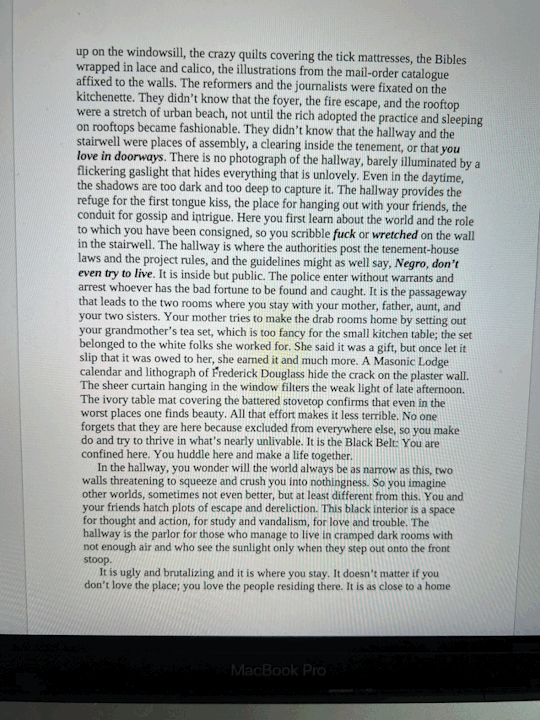
Saidiya Hartman - Wayward Lives, Beautiful Experiments_ Intimate Histories of Social Upheaval
I wanted to speak about this section because it offers a poignant portrayal of urban life, particularly within marginalized communities. The passage sheds light on the often-overlooked spaces in tenements and low-income housing, challenging common perceptions and highlighting the rich complexity of these environments.
Firstly, it critiques the narrow focus of reformers and journalists on certain aspects like the kitchenette, while overlooking the significance of other spaces like the hallway, stairwell, and rooftop. It emphasizes how these spaces serve as more than mere functional areas but as hubs of social interaction, learning, and even resistance.
Secondly, the passage delves into the dual nature of these spaces - how they can be places of refuge, intimacy, and creativity, yet also sites of confinement, surveillance, and struggle against systemic injustices. This contrast is powerfully illustrated through details like the authorities' presence, the use of the grandmother's fancy tea set to create a sense of home, and the clandestine acts of rebellion like graffiti on the walls.
Lastly, the passage captures the resilience and resourcefulness of individuals navigating these challenging environments. It speaks to their ability to find beauty, create connections, and imagine alternative realities despite the constraints imposed upon them.
Overall, this section resonates deeply because it humanizes the experiences of those living in marginalized urban spaces, challenging stereotypes and inviting empathy and understanding for their lived realities
Jehan Rana
0 notes
Text

Research
Brooklyn Bridge, Palestine Protest
Participating in a Palestine protest on the Brooklyn Bridge in NYC is important to me because it's a powerful expression of solidarity and a stand against injustice. It's a moment where individuals come together to amplify their voices for a cause that deserves attention and action.
As for my photography exhibition, "Echoes of Strength," it resonates deeply with the themes of resilience, unity, and the human spirit's capacity to persevere in the face of adversity. Capturing the energy and passion of such protests not only adds depth to my work but also serves as a visual narrative of the ongoing struggles and triumphs of communities fighting for their rights.
The Brooklyn Bridge, with its iconic structure and historical significance, becomes a symbolic backdrop that amplifies the message of strength and unity in the face of oppression. By documenting these moments, I aim to create a platform for dialogue, empathy, and understanding through the medium of photography.
Jehan Rana
0 notes
Text
Final Project
Final Artist Statement
Jazmin Chapman
Professor Miller
Junior Research II 24/SP-PHOT-306-04
April, 15, 2024
Project Statement: On Queerness and Style
Clothes are similar to a sculpture: they frame the body as much as they frame the narrative of how someone is perceived and who they internally identify with. The photographic process of this body of work is having my model interact with the items of their clothing and form gestural positions with their bodies which express their essence and style.. Style is a non-verbal form of expression that portrays people’s identities, such as cultural, socioeconomic, and racial background. This body of work seeks to explore the nuances of how all these identities intersect for LGBTQ+ people of color. I ask my models questions that revolve around the evolution of their style, such as “how has your style influenced you coming into your queerness? How has it intersected with your other identities, and has that changed over time? The goal of including these written responses with the photos is to explore how the intersections of identity influence style


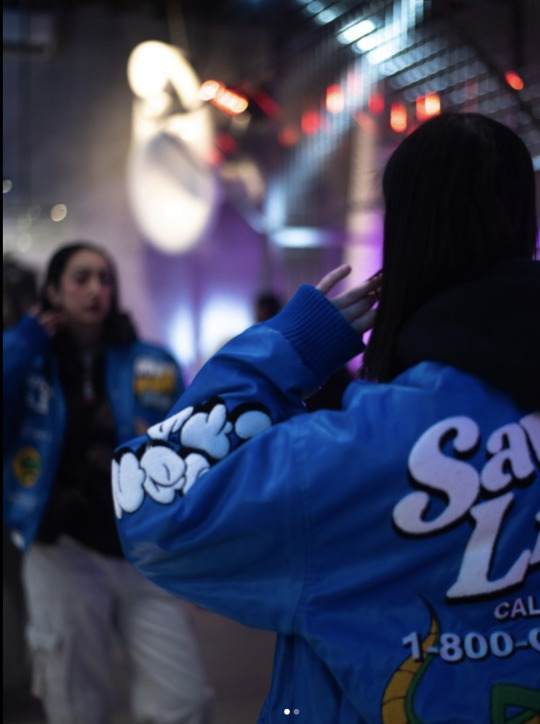
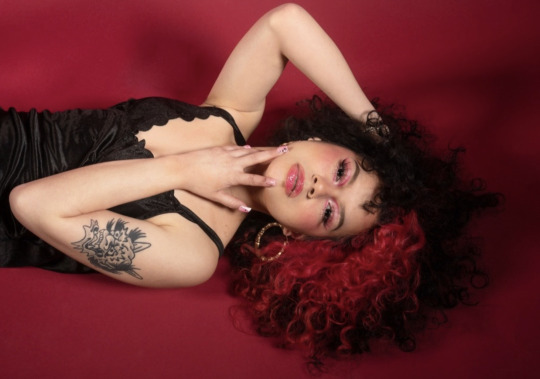
-Jazmin Chapman
0 notes
Text

Visiting the Interference Archive's exhibition "Palestine Lives!" was a thought-provoking experience that delved deep into the intersection of image-making and revolution. The exhibition's exploration of the power and significance of images during times of crisis shed light on their dual nature—both crucial for conveying truth and dangerous when manipulated or misinterpreted.
Images hold immense importance during a crisis as they serve as windows into the realities faced by communities and individuals. In the context of Palestine, where lives are deeply affected by ongoing conflicts and struggles for freedom, images become tools for bearing witness, documenting history, and amplifying voices that might otherwise be silenced. They capture the emotions, struggles, and resilience of people, creating a visual narrative that transcends language barriers and reaches global audiences.
However, images can also be dangerous when used to distort truths or perpetuate propaganda. In the context of Palestine, where media narratives are often manipulated or biased, images can be weaponized to serve political agendas or reinforce harmful stereotypes. This highlights the importance of critical engagement with visual media, encouraging viewers to question narratives, seek multiple perspectives, and consider the context in which images are produced and disseminated.
The Interference Archive plays a crucial role in the fight for freedom by preserving and curating a collection of images, documents, and artifacts that represent diverse struggles for justice and liberation. As an archive, it serves as a repository of collective memory, offering insights into historical movements, resistance efforts, and solidarity networks. By making these materials accessible to the public, the archive empowers individuals and communities to learn from the past, draw inspiration, and mobilize for change.
Jehan Rana
0 notes
Text
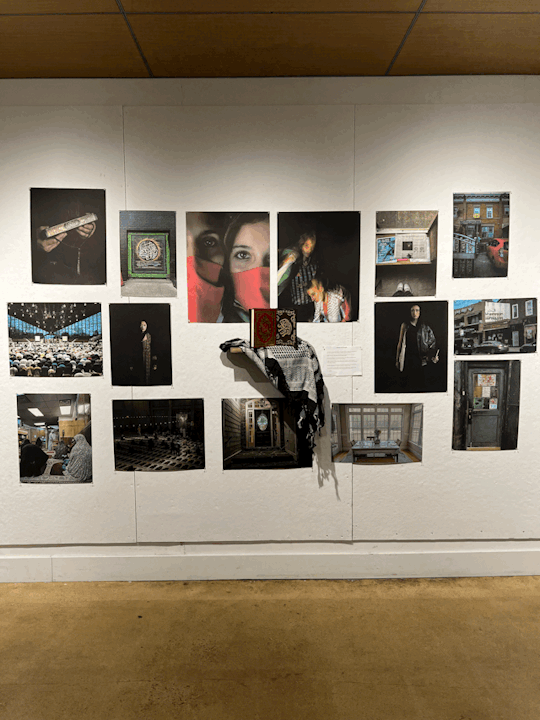
Echoes of Strength
As a Muslim woman who has struggled with wearing the hijab, I understand the challenges that come with it. Right now, I’m not wearing it, and that's a part of my journey too.
Ramadan has always been a time of deep reflection and connection for me, but this year is different. Without my family around, it’s been especially tough.
And then there's Palestine. The ongoing genocide there weighs heavily on my heart. Innocent lives are being lost, families torn apart, and it's devastating.
Through "Echoes of Strength," I want to share my journey with you. I want to capture the strength and resilience I've found within myself and my community. But I also want to shed light on the suffering in Palestine.
My photos are my way of speaking out, of advocating for innocent lives. I believe that through awareness and compassion, we can make a difference, no matter how small.
So, as you explore my photos, I hope you'll feel the emotions behind them. I hope they inspire you to join me in advocating for peace, justice, and the protection of innocent lives.
Free Palestine.
Jehan Rana
#jehanrana
0 notes
Text
HEADLINES- Ashley Carvajal
In my installation, I delve into the complex interplay between identity, celebrity and social media consumption by exploring the creation of an alter ego that exists within the digital realm. I have crafted a narrative around the concept of an industry plant – a carefully constructed persona designed to captivate and entertain, yet divorced from the true essence of the self.
Through this character, I confront the vulnerability of being oneself in a world where every aspect of our lives is subject to scrutiny and curation by others. Social media becomes both a stage and a prison, where the version of ourselves that is presented is never truly our own, but rather a product of external perceptions and expectations. It serves as a commentary on the commodification of identity in the digital age, where authenticity is often sacrificed in pursuit of likes, shares, and followers.
By confronting the constructed nature of our online personas, I hope to spark conversations about the ways in which social media shapes our perceptions of self and others, and the profound impact it has on our sense of identity and belonging.





0 notes



